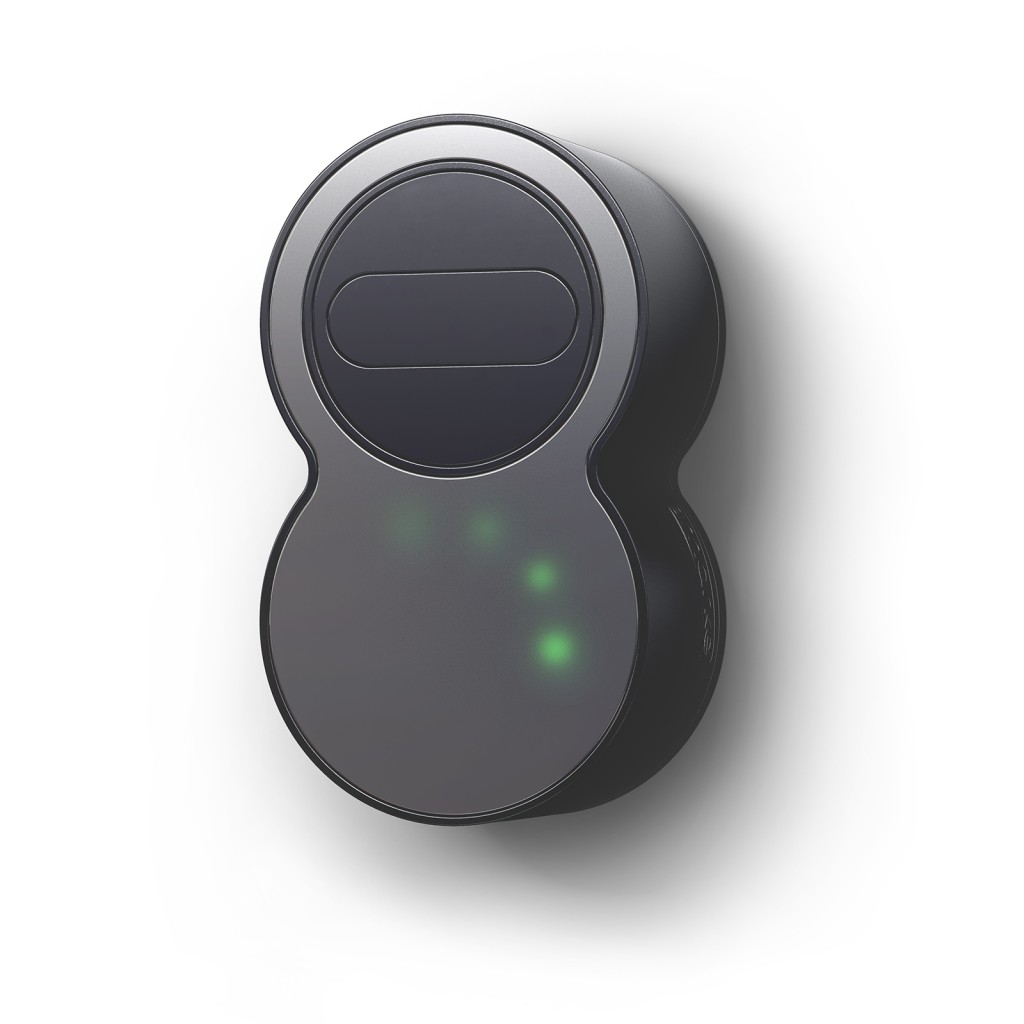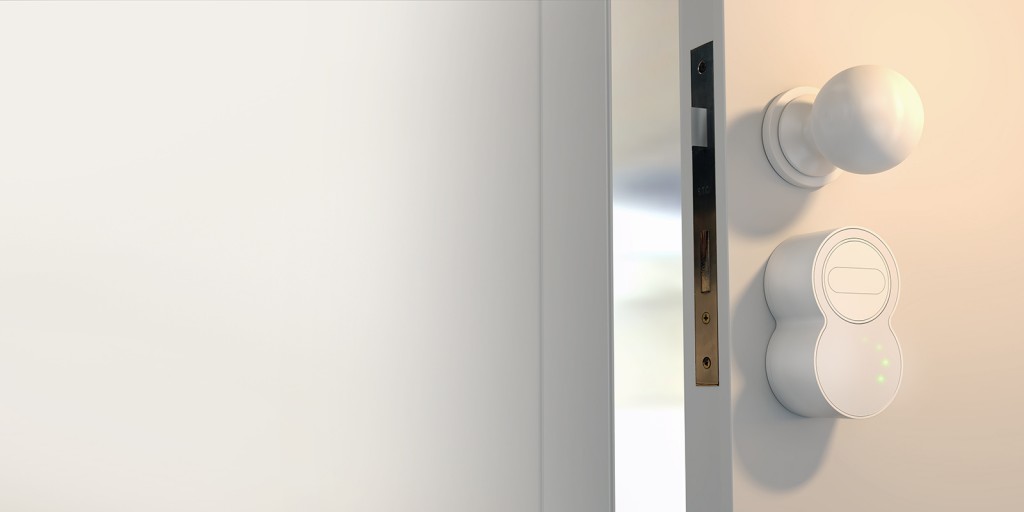Start-up focus: Smarke. Their keyless entry solution
As AirBnB becomes the hotel of the world, it’s inevitable that new innovations will crop up around it to make the process of ‘living anywhere’ even smoother. One such innovation comes from a start-up called Smarke, who have designed a product that allows property managers and hosts to grants guests instant, remote access to their property using their mobile phone, and without having to hand over a key.
After three years of product testing, Smarke are now on the verge of launching their keyless entry solution onto the market.
We spoke with Hady Abdelnour, one of Smarke’s co-founders, about their innovative product.
So I understand what Smarke does in theory, but how does the process go – both for a property owner and their guest?
The first thing a property manager needs to do is to install our hardware onto their lock. This just takes two to three minutes. Our hardware fits onto a standard Europe lock, and it fits on the inside of the door, so other people can’t see it.
Then there’s a quick syncing process with your phone, just to confirm that you are the owner of the lock and the main admin. Once you’ve done this you can grant other people access to the lock, via the mobile app.
You can give two types of access – permanent access, for example, to a family member, or temporary, scheduled access. To give temporary access, you just input the dates you want to allow that person to be able to enter your home for.
For the guest, they simply have to open the mobile app and they will have access to a key for that lock. A Bluetooth signal between the phone and the hardware on the lock will give them access to the property.
What platform does it require? For example I’ve got an iPhone 4 and I’m finding lots of apps are becoming obsolete.
It will work on any mobile platform, so there’s no worries about guests being locked out when Apple updates their operating system!
There is also a web version as well, though it’s not possible to get a key through this – the web version is simply an admin tool for a property owner to manage dates and access.
We’re also developing a keypad, so a user can type in a code instead of having to open the mobile app if they prefer
How about security – I’m sure that’s a question a lot of people will have the first time they encounter something like this?
So we have three layers of security – firstly the hardware which is protected from any exterior signals that will disrupt its function.
Then we have the communication between the phone and the device, and you have to make sure this doesn’t get hacked. So we’ve developed what we call military grade algorithms to protect the key code at this stage.
Then finally there is the communication between the phone and the cloud; when you send the key from phone to phone it goes via the cloud. Again, we’re using very secure channels for this.
The reason we use Bluetooth is to focus all our security channels – we could have linked it to Wi-Fi which would have given us more freedom, but it also makes it harder for us to secure the channels.
I can’t tell you much more about our security, because it wouldn’t make sense to make it public, but I can say that all three channels have been heavily tested, and we’re using the same state of the art security systems that the banks use.
You could even say it’s more secure than a regular lock?
We think so – one thing we say to AirBnB hosts and property managers specifically is this: You might give your key to 100 guests per year. That’s 100 opportunities that someone has to make a copy of it. With Smarke, you won’t run this risk anymore, so yes, I actually think we’re improving the security.
So no more leaving keys under pots?
Yes, exactly. It’s quite common in the Air BnB space that a guest arrives late and can’t get into the property without seeing the property manager, so it’s solving that problem. The traditional solution would be to leave a lock box, but that’s outside the property, so not so secure, whereas Smarke is inside. It also solves the problem of a tenant losing their keys and not being able to get back into the property. (This is actually what inspired the idea for Smarke!)
You mentioned that your hardware fits on to a Europe Lock. Is this common?
In Europe, obviously it’s very common and new buildings in the UK all have it too – older buildings tend to have other models like Mortise Lock. But the Europe Lock is going to become more and more common, as it’s much more efficient than the Mortise Lock. We can also change the locks on any building if required.
You’ve mentioned AirBnB and it seems like they would be an ideal partner. Is that a route you’re looking to go down, either with AirBnB or any other potential partners?
Air BnB would be a dream partner of course, but at the moment we’re not looking to tie in directly with anyone. That said, we’re studying the API of Air BnB quite closely to see how easily we can link in with this. So using the platform to get the names of the guests instantly to make the experience of the hosts even simpler.
But before we get a huge community using our solution it won’t be easy for us to partner with these companies.
How about some smaller partners?
We have a number of property managers who have asked to take part in our first round of beta testing, which starts in February. It’s really positive that we’ve had so many property managers asking to use it – and not just from the UK but from countries in Europe as well.
So when does your beta testing begin?
Our first round of beta testing begins in May. At present we have 13 clients who will test it for us in around 100 properties.
There’s obviously a lot of demand within the short term rental sector. Do you see any scope for Smarke within the commercial property space?
There are a lot of different components to the software we’ve developed which can provide solutions for other markets. For example, we’ve actually been approached by a company in Beirut to create electronic access points for their office using Smarke software. So yes, offices where you need I.D cards, hotels, retail – all these verticals are in our thinking for the future. It’s not a short term plan, but certainly a mid-term plan.
What have the biggest learnings been along the way?
Well, I think I can say what anyone who has tried to create a hardware product will tell you – that hardware probably the hardest thing for a start-up to do because you have to go through so many different designs before you find the right one. It’s very costly and takes a long time. We’ve been three years in development up to this stage. So I think the most important thing is to be prepared for a long journey – both mentally and financially.
With regards the financials, am I right in saying you raised just over £300,000 in the early stages?
That’s right – We won a major competition run by MIT Enterprise Forum called Grow my Business – this got us a lot of exposure.
Eventually we received half from a government grant, and half from Angel Investors. We were really lucky that all our investors so far have asked to invest in Smarke, so we haven’t had to do any pitching.
And you have another round of crowdfunding planned?
Yes, we will be raising a second round of funding through Crowdfunders. Our campaign isn’t live yet – I’ll keep you posted!
Do you have any competitors?
There are some companies doing a similar thing, but we’re the only one really focused on the short term rental market. We’re completely focused on digitalising the short term rental market and nobody else is approaching it from this angle. We’re also the only ones building a keypad, and the only ones building an intercom system, s we think we’ve got a fair few USPs covered.
Where do you see Smarke in 3 years’ time?
We want everybody within the short term rental space to be asking for Smarke, and to understand the convenience and security it offers. We hope we can be the primary players in this space.
And secondly, we plan to approach companies who provide maintenance to properties. We see a big opportunity in this space to and we plan to attack this over the next year.

